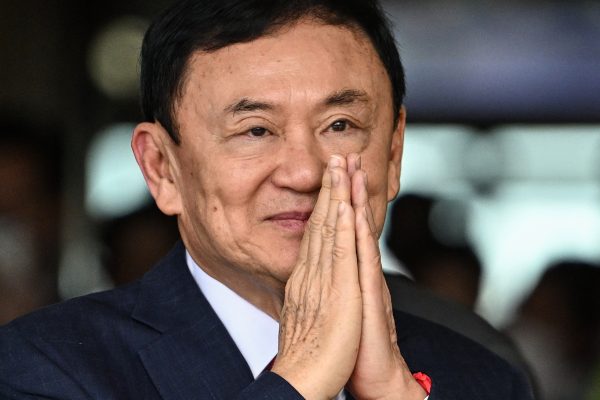Green Line could be a tough ride for Chadchart

Managing the controversial Skytrain Green Line shrewdly, bogged down as it is by controversies over high fares, court battle over debt and extension of concession, is going to be a major test for newly elected Bangkok Governor Chadchart Sittipunt
The high fares of mass transit services in Bangkok have been largely blamed for lower and lower-middle-income groups having only limited access to the facilities. Not only consumers, but even academics have for long complained about the fares.
Before the 2019 general election, politicians had promised lower fares and better services, but so far, the coalition government led by PM General Prayut Chan-o-cha has not delivered on its promise.
Before getting elected as Bangkok governor, Chadchart too had promised to resolve issues related to the Green Line Skytrain fares, the debt incurred on this project, and legal aspects of the concession extension. Bangkok Mass Transit System Plc (BTSC), the current concessionaire, is already knocking on court doors.
While the Green Line comes under the oversight of the Bangkok Metropolitan Administration (BMA), other train lines are under the Transport Ministry via the Mass Rapid Transit Authority of Thailand (MRTA).
Currently, the Green Line consists of two main train routes: the Silom route starts at National Stadium in Bangkok’s downtown and runs until Bang-Wa station on the western bank of Chao Phraya River; the Sukhumvit route covers Bangkok and neighboring Pathum Thani and Samut Prakan provinces. The intersection of these routes is at Siam Square, the heart of Bangkok’s business district.
Governor collects data
On June 2, Chadchart held a meeting with Krungthep Thanakom, the BMA’s business unit.
He said after the meeting that details of the Skytrain system must be reviewed thoroughly as the matter involves many agencies. It would take about a month to formulate an action plan to solve the many issues, Chadchart said.
Free ride to end soon
Currently, commuters enjoy free rides on the northern section of the Sukhumvit route — Mo Chit-Khu Khot, and the southeastern section of the Sukhumvit route — Bearing-Samut Prakan,
Chadchart said that to ease the debt burden, fare collection on these two routes may have to start soon.
Fare collection on these routes will surely lead to higher costs for commuters who are already paying a high price on a daily basis.
Currently, commuters traveling from Mo Chit station to On Nut station have to pay 44 baht per trip to the BTSC. If their travel extends beyond On Nut until Bearing station, they have to pay 15 baht to the BMA, which owns this section.
So if the BMA collects another 15 baht from Bearing to Samut Prakan, commuters will have to pay 74 baht in total.
“I agree with additional fare collection on the sections where commuters are enjoying free rides currently. It is only reasonable, but it will bring us back to the issue of high fares,” said Sumet Ongkittikul, a researcher at Thailand Development Research Institute (TDRI).
During the election campaign, Chadchart had said the fare per trip should be below 30 baht for eight stations (currently 44 baht).
BMA authorised to manage troubled Green Line BTS train system – Interior Minister
Concession crisis
The BTSC has held the concession of the Green Line’s original sections — Mo Chit-On Nut on the Sukhumvit route — and National Stadium to Taksin bridge on the Silom route. The concession will expire in 2029.
The BMA under former governor Aswin Kwanmuang and the Interior Ministry had agreed to extend the concession for another 30 years in exchange for the maximum fare not exceeding 65 baht along the end-to-end route.
But the BMA’s proposal was not approved by the Cabinet as the Transport Ministry raised objections and did not buy the BMA’s argument of cheap price. The general public also questioned the BMA on why it was rushing to extend the concession and pointed out that a 65 baht ticket per trip is not cheap.
Chadchart apparently did not want to extend the concession but preferred transferring the Green Line ownership to the Transport Ministry.
“More important than the extension of concession are the new conditions and terms agreed on with the concessionaire,” Sumet said, hoping for fair and transparent practices.
Massive debt
The BMA has incurred debt exceeding 100 billion baht so far from its investment in the Green Line.
Chadchart plans to review outstanding debt owed to a private operator amounting to about 40 billion baht.
The BMA incurred the debt as it had hired the BTSC for the operation and maintenance and electrical and mechanical installations of the Green Line extension — Taksin bridge to Bang-Wa; On Nut to Bearing; Bearing to Samut Prakan; and Mo Chit to Khu Khot. The BTSC has taken the case to court demanding payment from the BMA.
The BMA has got the debt transferred from the MRTA for civil engineering costs related to the Bearing-Samut Prakan and Mo Chit-Khu Kot extensions. The principal and interest cost is about 65 billion baht.
Chadchart has indicated that he wants to hand over the running of the Green Line to the MRTA as it has overseen other mass transit train lines in Bangkok. He believes the MRTA could bring down the fares as it could cut the entry fee when travellers transit from one line to another.
However, Sumet asserts that the BMA could cut the fares without transferring ownership of the Green Line to the MRTA. Other critics point to the poor service of public buses in Bangkok run by the Transport Ministry.
Chadchart has promised to improve the public bus service by aiming to help people access the main transport system at a lower cost. He said the feeder system could be enhanced right away as it does not require a large investment when compared to the main infrastructure projects.
Green Line debt financing
Should the Transport Ministry block Chadchart’s proposal to transfer the ownership of the Green Line to the MRTA, Chadchart might have to tap alternative sources of funding.
He may choose to raise funds via bond issuance, or he may rely on local taxes, especially the building and land tax. Currently, landlords have turned their land plots in Bangkok into banana plantations, in a clever ploy to avoid paying the higher tax rate on vacant land. Such practices would definitely lower the BMA’s tax revenue. This is a challenging issue that Chadchart will have to address.
Transparency of Green Line investment
The Transport Ministry had previously raised the issue of transparency for denying approval to the concession extension proposal made by the previous BMA governor, the Interior Ministry and the BTSC.
Chadchart too does not agree with the proposal. The public seeks details of the proposals and wants the BMA to disclose all contracts signed by the previous administration with the BTSC.
“The Green Line concession could be extended but relevant information must be disclosed to the public,” said Mana Nimitmongkol, director of the Anti-Corruption Organization of Thailand.
By Thai PBS World’s Business Desk
New Bangkok governor carries huge burden of expectations and promises






